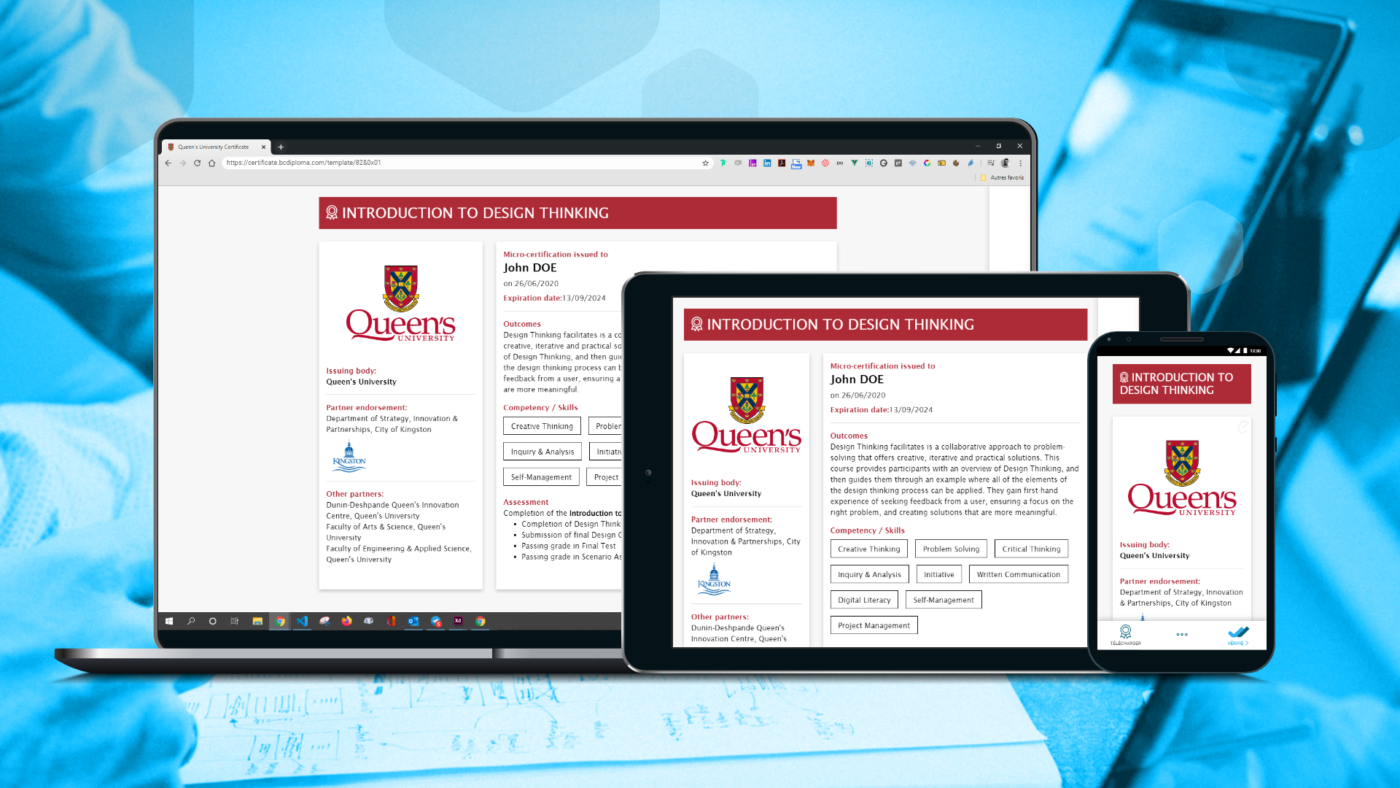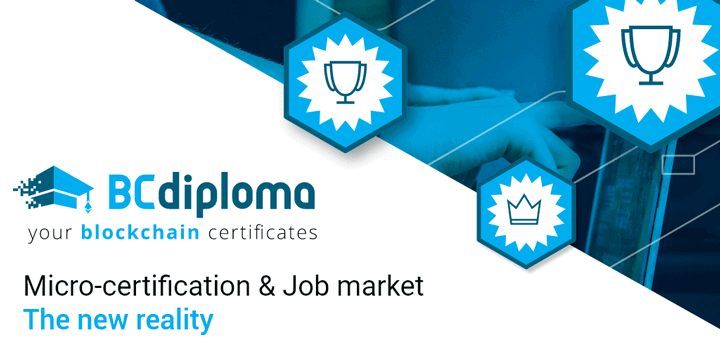Micro credentials emerge in the EdTech landscape as a valuable education alternative. The number of micro-credentials rises sharply to meet the new job market’s criteria and candidates’ need to differentiate themselves. Meanwhile, college degrees’ value declines and universities could consider incorporating micro-certifications to their syllabus to remain attractive against more atypical education paths. Moreover, since the needs of recruiters and students have changed, credentials format has too. Blockchain start-ups could disrupt the digital credentials emission.
Overall, micro-credentialing represents a real potential for students, active workers, universities, and recruiters.
The needs of students and recruiters have changed. The job market has changed.
The job market has become extremely competitive. Whether it is for an internship or a full-time role, the competition is now global. As a striking example, chances to find an internship at Goldman Sacks (4.00%) are lower than getting into Harvard (6.00%) (Harvard Crimson, 2020). Therefore, students, as well as active workers, are looking to differentiate themselves to increase their employability.
On the other hand, recruiters must alleviate adverse selection and find the most suitable employee. For instance, top-tier investment banks often develop complex application rounds and psychometric tests to evaluate candidates beyond their academic background. Moreover, fast-growing businesses’ hiring strategy is rather focused on practical skills — such as UX/UI, Full-stack developer, SEO, etc. — than academic knowledge; better demonstrated by a micro-certification than by a college degree.
As a direct consequence, there is a steady decline in full-time employment whereas the number of atypical contracts skyrockets.
Micro-credentialing aims at increasing employability
First, what is a micro-credential? Once you have demonstrated mastery of the specific skill or topic studied, you can claim your micro-certification, displayed as a digital badge. Then, you can list it on your resume, your LinkedIn profile or share it with your network using a simple URL link.
To address the job market’s heightened competition, micro-credentialing could be one solution. Micro-credentialing is a life-long process about building a self-portfolio of “badges” to better evidence your skills, capabilities, and interests.
Digital credentials examples are not only a qualitative education alternative but also a tool to enhance your continuous learning experience as an active worker.
Universities must adapt to remain attractive
To remain attractive for students against more atypical education paths focused on practical skills, universities should consider incorporating micro credentials examples to their syllabus.
However, academic micro-credentials, such as bootcamp trainings, MOOCs, or full-time certificates are often expensive, non-exclusive, and focused on theoretical skills.
However, a few prestigious institutions, such as emlyon business school, offer specialized micro-certificates online to both their students and professionals.
Overall, as prestigious universities offer online micro-certificates, academic education is being transformed to match recruiter’s expectations.
The example of eCampus Ontario
In Canada, eCampusOntario, a government-funded non-profit organization, is currently working with universities and colleges to develop micro-certifications in collaboration with industry partners.
“A flexible and reliable recognition system is essential for professionals and employers, who are increasingly moving towards competency-based or aptitude-based recruitment. Micro-certificates differ from traditional diplomas, such as degrees and diplomas, and bring special value and relevance in the professional ecosystem.”

How the blockchain disrupts the digital credentials emission
As university education evolves, degrees’ format changes too. The digitalization of diplomas and certificates is an increasingly popular alternative.
Everyone knows the problem of false diplomas, or the time-consuming processes of issuing paper diplomas, transcripts, or the multiple duplicates that a graduate needs in his first years of activity.
The blockchain makes possible to offer a reliable, sustainable and efficient alternative to each of these problems. For example, BCdiploma is an innovative start-up that uses public blockchains to dematerialize, store and secure any type of credential or micro-credential.
